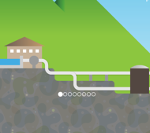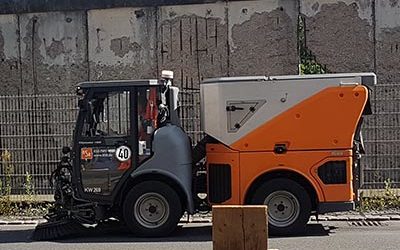A new water era is coming for our children´s generation
-This Op-Ed article was made for the course «Water Supply and Sanitation Policy in Developing Countries Part 2: Developing Effective Interventions» made by William Ávila C for the University of Manchester and it´s part of the final task submitted by the Coursera web page. This was a real scenario that was formulated by the developers of the course-
The Egyptian Water Regulatory Agency (EWRA) undertakes regulation of the sector of water and sanitation in the Country so therefore it´s developing a regulatory work based on the analysis of different attempts of sector reforms, taking data analysis and different worldwide expert’s recommendations.
As Egypt’s Water Regulatory Agency, we want to conserve water and give it the best possible management as our essential natural resource throughout history. We live in the age of climate change, so we are responsible for taking care of our water sources in order to guarantee this resource to our children and their future generations.
We have significant advances through the years and now most households in Egypt have metered, private connections to a piped water network and many are connected to sewer systems. Also, most households have 24-hour service and the quantity and quality of water are good overall, but we have to achieve better results in order to complete full coverage and improve even more water quality.
In pursuit of these goals, as a society, we must begin to undertake necessary changes for the sustainability of our water sources. Nowadays, households in Egypt pay some of the lowest water bills in the world; compare with similar countries where the average price for household water use of 15 cubic meters (m3) is about 0.4 US dollars (USD) per m3, this is about six times higher than the average price charged to households in Cairo and Alexandria.
For several years, Egypt and its water and wastewater sector has been in a reform process that has increased corporatization and has transfer responsibilities from central and local governments through local companies that don´t follow the public sector principles. So, we need a change, but it´s not only a change for the utility companies, it`s our chance as a society in order to preserve our water with three main tasks:
- Make a rational consumption of water
- Modify tariff structure
- Review customer classification
Rational consumption starts with a conscience about the correct use of water in our households in order to avoid waste of water. In this task, the Egyptian government will continue to guarantee the domestic customers’ lifeline consumption that corresponds to 10 m³/connection/month with a low tariff rate (Block until 10 m3), but for additional cubic meters, a charge will be different, so, our second task will consider a different rate for each additional meter consumption.
Our third task will be performed by utilities and they will be supervised by the Egyptian government so as to obtain more accurate information of the households because the idea is to know where the poorest customers are in order to focus our subsidies in a better way, taking into account the higher consumption blocks and industrial and commercial users should that subsidize these users.
As usual, in the shot and medium-term, the Government of Egypt will continue subsidizes investments, operations, and maintenance, but the goal is to achieve more efficient structures by the utilities and in the long run, the objective is to move gradually towards full cost recovery and financial growth.
The objectives of the desired future tariff structure are therefore mainly 1) resource conservation (by charging more for higher consumption) and 2) the provision of cross-subsidies from high-use consumers to domestic low-use consumers, by creating/maintaining an initial domestic lifeline consumption block that is heavily subsidized.
The adequacy of the amount of wastewater surcharge and appropriateness of the arrangement itself is questionable. The customer classification system also varies widely among companies. The EWRA believes that the whole of the tariff structure and levels, for both water supply and wastewater, require examination.
All these measures are necessary, and we don´t have to forget that the new tariff structure is based on these main principles:
1) Resource conservation; it means that we have to charge more for higher consumptions and use this excess wisely.
2) The provision of cross-subsidies from high-use consumers to domestic low-use consumers, by creating/maintaining an initial domestic lifeline consumption block that is heavily subsidized, and in this case 10 m3 for Egypt. As EWRA, we believe that the whole of the tariff structure and levels, for both water supply and wastewater, requires deep examination.
This increase of tariffs will guarantee to achieve full coverage, improve quality, and maintain continuity with 24 hours. So, as Government we want the participation of all communities, I order to hear them and to Improve beneficiary targeting and obtain greater efficiency and accountability in theses process. We believe that with these reforms we could gain more equity, fairness, affordability, and poverty alleviation.
Finally, it´s important that the water utility bill could provide customers with information about what’s coming in terms of future tariff increases. We believe that a constant information process it´s necessary and water utilities could explain that they will give customers with irregular accounts an amnesty period to clear up past problems or unpaid balances.
Short Messages to include in the monthly water bills
- Shot messages about climate change you can include:
The Egyptian Water Regulatory Agency (EWRA) remind you that climate change threatens our water sources and that is why we must conserve them by making the best possible use of water without wasting it. Our children will thank you!
Climate change makes our operations more difficult and expensive¡ Did you know that we increase risk and vulnerability every time we have to deal with floods or droughts? Help us to prevent these incidents and make a wise use of our water and sewer systems
- Send brochures with these kinds of messages related with the process and costs for water supply
Did you know that water supply has these activities before you can enjoy it for consumption?
Water catchment – Adduction- Treatment – Conduction – Storage – Distribution – Commercialization
These activities are shown in this diagram left to right. You can identify them!

To have clean water we must afford them with this bill, please help us to guarantee quality water for you and your family!
- Establish online payment and send messages like this: Did you know that you could view your bill and pay it online? Visit us on utility.com/payment
- Establish special agreements for delay payments and promotions form finance in annuities the debts caused by the service bills
- Establish a contest for water saving tips and prepare a shot formulary to deliver into the utility in order to apply to discount
- In the bills include the last cubic meters of the las 6 months and the average obtain in this period
- In the bills, include a complete description of the charge including the different activities of water supply and sewer activities. If subsidies were applied, describe them too.
- When a customer reaches decreases in consumption, water utilities could send a ‘thank you’ note for their contribution
- Bills should include the type of customer and a brief description of its category
- Bills should describe the block used for the first 1o m3 and the particular rate used for the additional meters charged.
- Every six months, bills should include a table of lead performance indicators used to inform about coverage in the city, quality of the water, continuity express in hours of service by day, and investments made or plan.





0 comentarios